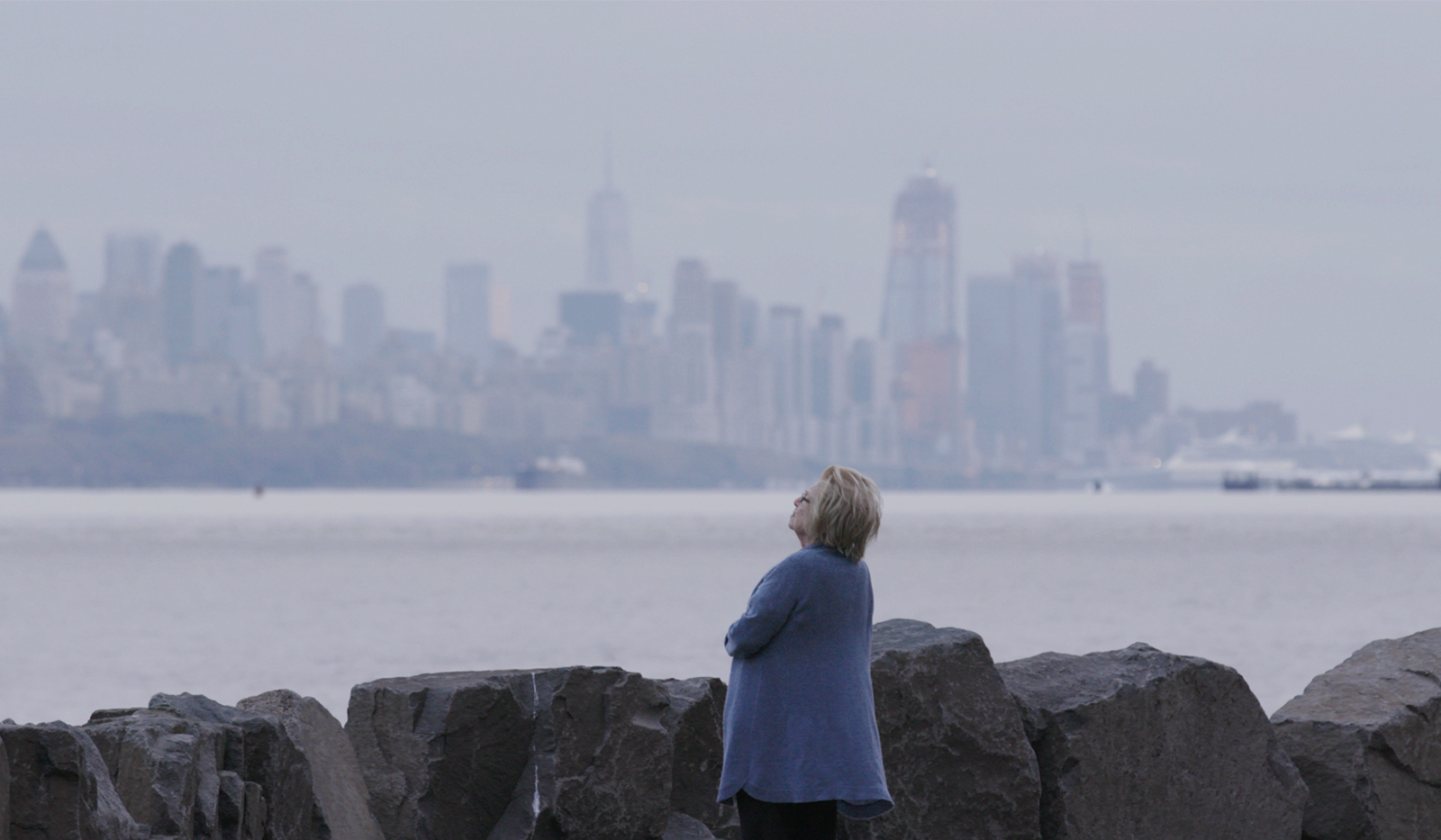Hammer Museum screens documentary chronicling life of iconic sex therapist

Dr. Ruth Westheimer gained notoriety in the 1980s as an instigator of the sexual revolution, discussing taboo topics with unusual candidness for her era. She is the subject of the 2019 documentary “Ask Dr. Ruth,” which chronicles Westheimer’s life and lengthy career as a sex therapist. (Courtesy of Heather Levine)
By Kaia Sherry
April 25, 2019 11:02 p.m.
In the 1980s, Dr. Ruth Westheimer, an elderly Jewish woman with a slight accent, became synonymous with sex, said Liz Goldwyn.
The “The Sex Ed” founder said Westheimer’s lengthy career as a sex therapist was chronicled decades later in director Ryan White’s 2019 documentary, “Ask Dr. Ruth.” Her grandmotherly demeanor is familiar to those who watched her on late-night television in the ’80s, Goldwyn said. Westheimer gained notoriety as an instigator of the sexual revolution, discussing taboo topics with an unusual candidness for her era. The documentary focuses primarily on the events leading up to Westheimer’s rise to fame, delving into her formative experiences as a Holocaust survivor. The film was screened at the Hammer Museum on Monday, followed by a Q&A with White and Goldwyn.
“I think people talk a lot now about drinking celery juice, exercising, eating kale and are extremely conscious about wellness, yet completely neglect sexuality as part of this overall wellness,” Goldwyn said. “Dr. Ruth is an icon in this space and normalized the conversation so that we even have the ability to discuss this.”
As White highlights in his documentary, Westheimer did not enter the realm of television until her mid-50s, leaving much of her earlier life shrouded in mystery. The film, aiming to elaborate upon remnants of Westheimer’s past, is not structured chronologically, but rather jumps among the different temporal incarnations of Dr. Ruth. Much of the documentary details 55 years of history, depicting Westheimer’s voyage through the Holocaust, World War II and the 1948 Arab-Israeli War. In the United States, she lived as a single mother in New York, working her way through school without knowing a word of English. White said he collected much of this information from interviewing Westheimer.
“I wasn’t expecting a lot of activity because of her age, but it turns out she’s the most active 90-year-old you will ever meet,” White said. “While teaching two university courses and publishing three books, she was zigzagging all over the world, so just following 90-year-old Dr. Ruth is a huge part of the film to show this woman that won’t slow down.”
[RELATED: Documentary brings in new narratives to spotlight black horror’s rich history]
Wanting to highlight her use of humor as a disarming mechanism, White said the film weaves in and out of darker, war scenes. It pivots back to the lively, modern Westheimer when he felt the mood was becoming too heavy. He said he aimed to strike a balance with the film’s emotional rhythm – had the film been told chronologically, the tragedy of Westheimer’s life may have overshadowed the accomplishments of her later years.
“Her humor isn’t only present when she’s processing difficult moments in her life, but also in the entirety of her personality that she’s presented to the world,” White said. “If you watch her on television, she was good at using humor to disarm people who weren’t comfortable talking about taboo topics in a public sphere, especially Americans nervous … talking about sex.”
In the process of creating the documentary, her humor led to the film’s crew often breaking the fourth wall, which neither White nor producer Rafael Marmor anticipated. On set, Westheimer would interact with the crew in a typical grandmotherly fashion, fretting over whether everyone had been fed and always insisting on second helpings. She bantered with them as well, offering the sound engineer cookies and telling White he should have called his mother that day during filming, White said.
[RELATED: Documentary uses virtual reality to spotlight women confronting violence in Iraq]
“The editors started saying early on that we could make this film without involving the filmmaker or the crew, but that it would be to the detriment of Dr. Ruth’s portrayal because it really is the most revealing part about her personality,” Marmor said. “We had countless amounts of these little moments and they’re peppered throughout the film.”
Coupled with Westheimer’s humor, White said he hoped to paint a picture of the events leading up to the modern Dr. Ruth, including a touching moment where she reconnects with her childhood boyfriend in Switzerland at the age of 90. The documentary ends in 1981, stopping at the crux of Westheimer’s fame, once she has finally transitioned into the figure known today.
“As a child, I saw her as this caricature that Johnny Carson used to play of her on SNL while also learning so much in the process regarding sexuality,” White said. “I hope people will understand the significance of this woman that they might not have grown up (with) and get a taste of what that was like to watch her during those times.”

